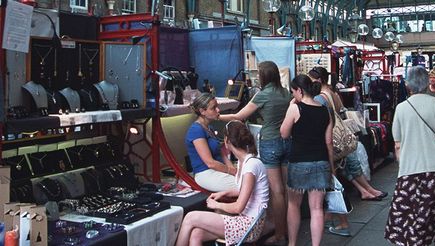More than any other company, Amazon has been responsible for the online retail revolution: it is expected to capture more than half of all e-commerce by 2021. So when the company opened its first bricks-and-mortar convenience store this January, Amazon Go, it was bound to raise a few eyebrows.
Intended to introduce speed and efficiency into grocery shopping, this checkout-free store generated huge media interest. But can a convenience store really be a revolutionary move, or is it a retrograde step? Why has Amazon made this move from virtual stores to the city streets?
They're revolutionising the format
The Seattle-based Amazon Go grocery store is actually far from traditional. Customers swipe their smartphone at the store’s entrance and proceed to shop as normal, with a combination of cameras and sensors registering their purchases. Shopping done, the customer exits and their account is charged. The idea is that by removing one of the biggest gripes of grocery shopping – queuing – the high street can combine the efficiency of online stores with the immediacy of traditional retail.
We’re still shopping the old way
It’s hard to argue with the impact that online retailers have had on our shopping habits. We can browse and shop 24 hours a day, 7 days a week and we're no longer limited by the range of local shops available. But 82% of retail sales still take place in a physical shop. Amazon may be an online giant, but it's still only a big fish in a small pond. By restricting itself to a single means of shopping, it’s limiting its market.
The pleasure of shopping
One of the ways traditional shops responded to the online surge was by offering something online retailers couldn’t: an experience. Bookshops felt the impact of Amazon early on and responded by offering something more enjoyable than simply sitting at a laptop. It’s now rare to find a large bookstore that doesn’t sell coffee to browsers. The message is clear: this is a place of relaxation and leisure. Amazon has in turn launched a chain of 13 physical bookstores across the USA – an acknowledgement of the pleasure of browsing.
The importance of the impulse shop
Physical stores have spent decades honing the art of luring customers in with an eye-catching shop window, which is always likely to be more enticing than even the most well-written search engine snippet. Once inside, retailers can use their powers of persuasion to generate impulse buys. Retail analyst Robert Hetu says online retailers have a lot to learn about “serendipitous shopping”, and Amazon’s physical stores are the perfect way for the company to improve its ability to create impulse sales.
Deliveries aren’t new
Ask your grandma: she can probably remember the days when the milk, bread, fish and groceries were all delivered. Arguably, Amazon Fresh (the company's online food delivery service) and the supermarkets’ online shopping offers are simply a return to this traditional customer service. Looked at in this context, Amazon’s latest approach combining physical stores and delivery services is just a continuation of this retail cycle.
A new tradition
Here’s the really clever part. By combining e-commerce data gathering with behaviours on the high street, Amazon can use what it learns from Amazon Go customers to improve the online retail experience, and vice versa. An Amazon Go customer is leaving behind a clear shopping profile each time they visit the store. It isn’t just the checkout-free format that’s driving this retail revolution: the behavioural data mining is too.
So the future of shopping may be to combine online and traditional bricks-and-mortar retail, with the line between them becoming increasingly blurred.
What can small businesses learn from the development of this global giant? Be bold. Experiment. Don't be afraid to learn from your competitors. Whether you re-introduce bicycle deliveries or build your first e-commerce website, there's no longer such a distinction between modern and traditional retail.






